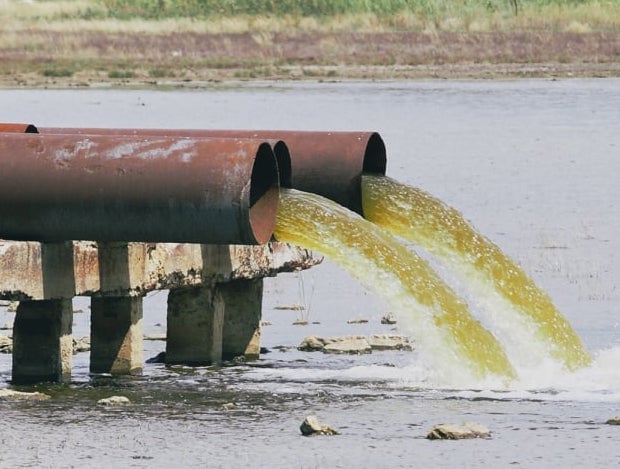Court Sides with Food & Water Watch and Allies in Fight to Clean Up Industrial Wastewater
Published Jul 9, 2025

The Ninth Circuit rejected EPA’s decision not to update nationwide water pollution standards for thousands of major industrial polluters
In a suit brought by several groups including Food & Water Watch, the Ninth Circuit Court of Appeals decided that the Environmental Protection Agency (EPA)’s decision not to update water pollution standards for several major industrial sectors including petroleum refineries, plastics manufactures, and fertilizer plants was unlawful. Now EPA will be required to reconsider its standards for these industries, properly accounting for improvements in pollution controlling technology when setting limits for discharges into waterways, known as Effluent Limitation Guidelines (ELGs). This victory stands to benefit waterways across the country and strengthen EPA’s standards-setting process for all industrial polluters.
Despite significant improvements to pollution reducing technologies, most of EPA’s industrial water pollution standards have not been updated for over 30 years. As a result, these inadequate regulations have arbitrarily allowed the plastics, oil and gas, and other industries to discharge vast quantities of pollution into U.S. waterways.
The court found that EPA’s analysis was arbitrary and unlawful because it relied on a deeply flawed “ranking” approach to decide what industry sectors to evaluate.This approach led EPA to overlook sectors that have huge pollution impacts and that could be using updated technologies to reduce their discharges. EPA will now have to reconsider its decision, and will have to demonstrate that it is using a rational analysis, not an arbitrary ranking scheme.
The court then went further, specifically finding that EPA acted unlawfully when it failed to consider stormwater runoff’s role in spreading water pollution from plastics industry facilities and noted that the current standards for plastic waste are weaker than the science suggests they should be.
An increase in plastics production has led to an increase in plastic pollution in our rivers and oceans. By failing to update pollution rules for plastics facilities, EPA is jeopardizing the public health and safety of downstream communities as well as water quality and aquatic ecosystems. A study done by Environmental Integrity Project, lead counsel on the suit, highlighted that plastic industry pollutants still unregulated by EPA (including 1,4-dioxane) are linked to cancer and continue to contaminate drinking water. Nitrogen and phosphorus are also still unregulated by EPA at plastics and petrochemical plants. These nutrients can cause algal blooms that can starve oxygen from water bodies, killing the fish and other life in them, and potentially sickening people who come in contact with them.
Now EPA must go back and reconsider or, at the very least, adequately justify its decision. While this decision does not require the agency to immediately revise all outdated standards, EPA must actually consider the latest pollution control technologies going forward. Food & Water Watch will continue to work to protect water quality and public health as EPA reviews this decision and charts its future course regulating industrial pollution.
The lawsuit (Waterkeeper Alliance, et al. v. United States Environmental Protection Agency, et al., Docket No. 23-636 (9th Cir. Apr 11, 2023)) was filed by the Food & Water Watch, the Center for Biological Diversity, Clean Water Action, Waterkeeper Alliance, Environment America, Bayou City Waterkeeper, Black Warrior Riverkeeper, Healthy Gulf, San Antonio Bay Estuarine Waterkeeper, San Francisco Baykeeper, the Surfrider Foundation, and Tennessee Riverkeeper. The Environmental Integrity Project and the Center for Biological Diversity represented the petitioners.
Enjoyed this article?
Sign up for updates.
TO TOP


